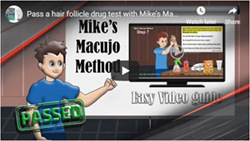Last Updated on May 6, 2025
In the dynamic world of job regulations and policies, drug testing has become a main influence in many employers' hiring procedures. These companies include FedEx, a major brand in both shipping and logistics solutions in the world. In addition to punctuality and efficiency values, FedEx has the organization’s most restricted internal drug testing programs for its employees. The article will focus on the detailed procedures of FedEx drug testing, giving the reasons for their implementation, the types of tests administered and the consequences of non-compliance.
FedEx's Commitment to Safety
FedEx's safety policy is being built upon its commitment to offer a safe working environment. As an organization that has to deal with regulated industries, including transportation and shift, the safety of both employees and clients is significant. Employers consider drug testing as a preventive measure to decrease the risks of an employee not performing well when under the influence of drugs. To achieve this, FedEx intends to avoid such consequences as accidents, injuries and possibly legal lawsuits by ensuring a drug-free working environment.
➔ Pre-Employment Drug Testing
The very first step of the FedEx employment process is precisely the pre-employment drug testing, since it’s one of the key components. All the applicants must undergo screening tests for various types of banned substances which include alcohol, marijuana, cocaine, opioids, etc. The trial here gives FedEx the possibility to check if the candidates have skills such as handling heavy machinery, dangerous substances, or controlling large vehicles. The candidate probably will not be admitted for further employment if he/she cannot pass the drug pre-employment test.
➔ Random Drug Testing
Besides the pre-employment checks, the firm undertakes random drug tests on its employees quite often. These tests are not announced and are performed at any moment to maximize the employees` compliance with the zero-tolerance policy. Random testing ensures the staff members are not addicted to substance abuse nor use controlled substances and as a result, may be used to identify the staff members who are having an addiction problem. Those subjects who will be detected to be using those proscribed drugs while undergoing the random drug checking will be subjected to disciplinary consequences, ranging from suspension or dismissal.
➔ Reasonable Suspicion Testing
As per FedEx policies, drug testing may be conducted based on reasonable suspicion of impairment or intoxication. The managerial staff could institute random drug testing. If there is evidence of slurred speech, irregular movement, or incoherent behaviour suggesting drug use, they may require the employee to undergo testing. Reasonable suspicion testing is an approach that regards the issues of workplace safety immediately to find the workers who are suitable for the job without incapability.
➔ Post-Accident Testing
If FedEx employees are in place when a workplace accident or incident occurs, they might be asked to go for drug testing. These post-accident tests help the authorities to know whether drug or alcohol use is the main contributing factor to the event, the ultimate consequences of which can be reduced by taking corrective measures and prevention in future by the same means. Providing detailed investigations together with analysis and drug testing after the occurrence of accidents lets FedEx show it is a responsible and safe company indeed.
Types of Drug Tests Used by FedEx
FedEx employs several types of drug testing to discover whether controlled substances are present in the employee's system. The most common types of drug tests used include:
- Urine Testing: The FedEx drug screening process has been urine testing as the main approach. This can allow us to identify a vast range of substances, and it is also a non-invasive technique. Personnel who take the test submit a urine sample to check for the presence of drugs or their end metabolites in the urine.
- Oral Fluid Testing: For mouth fluid testing, it is called the oral fluid test. The test comes with the collection of saliva samples from the employee's mouth. This approach is useful in determining the most recent use of a drug because they are often present in the saliva for a short period, while drugs can be in the urine for a longer period.
- Hair Testing: Hair testing is carried out over a simple process of a sample of hair taken from the employee. Drugs and their metabolites can be retained in hairs for a long time to be detected, in comparison with the presence of drugs in urine or oral fluids examinations that are conducted by similar methods of testing. Such a method is especially crucial in the detection of chronic or recurrent drug abuse.
- Blood Testing: While less typical than saliva or urine tests, blood testing could be used in certain cases, such as in the scope of post-accident case studies. Blood tests will provide more precise and quick surges for the results, but they are more complicated and expensive than the other approaches.







